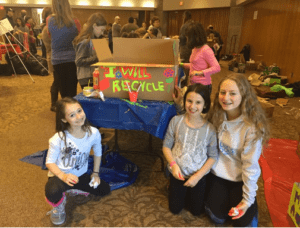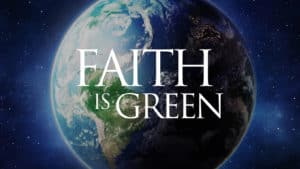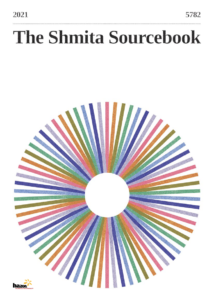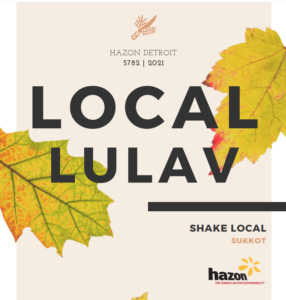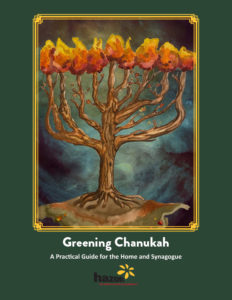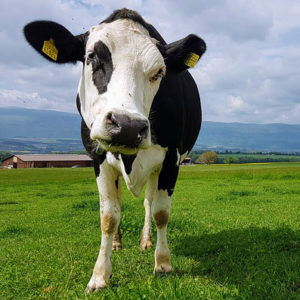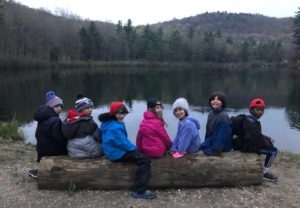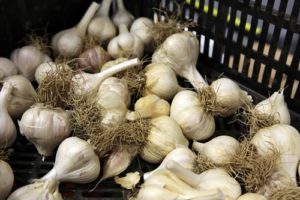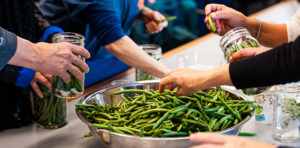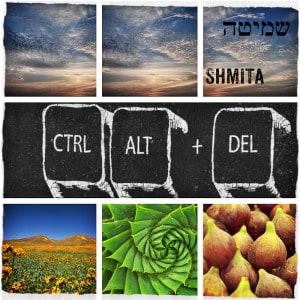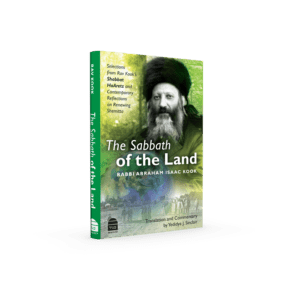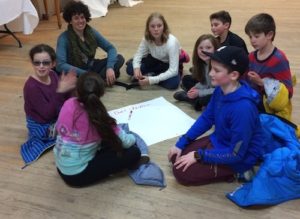Hazon Educational Library: Environmental Justice
Recycling Toolkit
Hazon
Recycling is the process of redirecting materials that would otherwise become waste and turning them into new products. It allows you to see the tangible impact your actions have on the environment. You should feel proud of the amount of material you’ve diverted from the landfill!
Reduce, reuse, recycle! In this saying, order is critical. Try to reduce and reuse your waste before recycling. While recycling is sometimes the best option available, it should be the last resort. Despite the challenges of recycling as a waste diversion method, it is an important sustainability tool when done properly.
Hazon’s Seal of Sustainability’s Recycling toolkit uses Jewish framing to show you step-by-step how to recycle and how to set up a recycling program in your community.
Category: Environmental Justice, Sustainability
Tags: Adult learning, community
Faith is Green
by Hazon and EarthX
Hazon
Hazon partnered with EarthX to produce episodes on Jewish environmentalism for the Faith is Green series on EarthxTV. This brand new original series details how we can all strive to create a more environmentally sustainable world through observance of Jewish values such as respect, fairness, responsibility, and community.
Episodes were available for free on EarthxTV for a year. The shows are currently unavailable due to international media agreements. Please check back in the future; we will reactivate the links as soon as the shows are available again.
Updated Shmita Sourcebook
Hazon
The Hazon Shmita Sourcebook presents a guided exploration of the history, concepts, and practices of Shmita, from debt forgiveness to agricultural rest, economic adjustment to charitable giving. The updated sourcebook explores texts and commentaries that build the framework of Shmita within the biblical and rabbinic tradition, as well as contemporary voices that speak to Shmita as it relates to our modern world.
Climate Action Shabbat Guide
Hazon
This Guide is designed to be an interesting educational resource and discussion stimulator as well as a practical set of tips and tools for you to adopt. The goal is for you to more closely align your Shabbat practices with your sustainability and Jewish values.
Local Lulav
Hazon
A Sukkot resource packet with everything you need to shake sustainable, local lulavim. Filled with relevant educational materials, practical shaking and assembly instructions, and accessible spiritual and environmental insights. Created for the Metro Detroit community.
Greening Chanukah Guide
Hazon
The Greening Chanukah Guide offers an overview of Chanukah through the lens of sustainability. Find tips and tricks for greening your holiday and learn more about the environmental implications of oil production to help create a healthier and more sustainable world for all!
Industrial Animal Agriculture and Climate Change – A Story Source Sheet
Hazon
The connection between industrial animal agriculture and climate change is significant. But why and how is that so? This two-page source sheet presents a string of data that tells a concise and compelling story of the connection between industrial animal agriculture and climate change. Based on the writings of Jonathan Safran Foer in his book We Are the Weather: Saving the Planet Begins at Breakfast.
Climate Change Time Machine All Camp Program
by Aliza Heeren
Eden Village Camp
Storyline: It's the year 3019 and life is pretty grim. And all of the environmental ethics that we knew in 2019 have been lost to history. It's up to us to go back in time to 2019 to save the future!
Age(s): Middle School
CSA Program Write Up
by Hannah Fine
Hazon Detroit
This program seeks to engage the Detroit and metro Detroit Jewish community in an intentional, educational, local, and sustainable food buying practice with clear roots in community and Jewish tradition.
Category: Environmental Justice, Food Systems & Food Justice, Jewish Agricultural Traditions, Sustainability
Age(s): Adults
Where Does Your Food Come From?
by Stephanie Salem
de Toledo High School
This program will introduce participants to the Jewish brachot over food and educate them about the food supply chain.
Age(s): Young Adult
Eco-Kosher: Innovation in Jewish Tradition through an Environmental Lens
by Sarah Rockford
Colby College
How can we use concepts of environmentalism to augment and evolve our understanding of what constitutes kosher food? What if we draw on the concept of kashrut and go beyond it to try out a new word: eco-kashrut?
Category: Environmental Justice, Food Systems & Food Justice, Jewish Food traditions, Sustainability
Age(s): Adults
Shmita Resource Library
Colby College
This is a collection of shmita resources from all across the internet that Hazon has brought together in one place. Curricula, educational materials, essays, articles, audio, and video.
Shabbat Ha’aretz
by Rabbi Abraham Isaac Kook
Hazon
Rav Kook's Introduction to Shabbat Ha'Aretz is the first-ever English translation of the introduction to a book on shmita (Biblical sabbatical year) by Rabbi Abraham Isaac Kook, first Ashkenazi Chief Rabbi of the land of Israel in the 20th century. His essay, written in 1909, is lyrical and mystical, a meditation on the big themes that underlie religious environmentalism.
Age(s): Adults
Throwing Stones or Throwing Flowers: Exploring Our Relationship with the Public Domain
by Shani Mink
Pearlstone Center
This program presents students with the opportunity to delve deeply into the hidden messages of verse 50b of the Bava Kama (the stones text). Through text study, discussion and a hands-on activity, students will explore their relationship with the public domain. After investigating the myriad ways in which we might violate the public domain, students will actively nurture the public domain through shared intentions for community prosperity hidden inside a seed ball or planted beneath a tree.
Bringing The Stones’ into the 21st Century
by Nicole Cruz
Peninsula JCC
'The Stones' text, from Talmud Bavli, Masekhet Bava Kama 50b, brings its readers back to ancient times. However, the lessons that can be learned from this text transcend time. In this program, participants will delve deep into 'The Stones' text, making connections relevant to today's world. Through this discussion, participants will discover what defines a community, and how in order to make an impact in a community, we must find a balance between protecting the Earth and meeting our own personal needs.
Age(s): Adults

